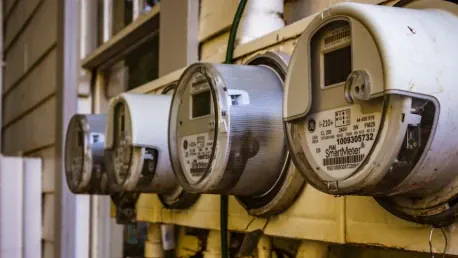In a significant shift in policy, Federal Minister for Economic Affairs, Robert Habeck, has proposed amendments to the Energy Industry Act that will slow down the installation of smart electricity meters (SMGWs) in Germany. This move marks a departure from the aggressive roll-out strategy initially championed by Habeck, who introduced the “new departure law” back in 2022 to expedite the adoption of these advanced meters. The draft bill released in mid-October suggests a more cautious approach, particularly for smaller electricity consumers, to ensure the stability and resilience of the national energy grid.
Focus on Critical Areas for Resilient System Operation
The proposed amendment would mean that households with an annual electricity consumption of up to 10,000 kilowatt-hours will no longer be mandated to install SMGWs. Instead, the installation will be optional and at the discretion of the metering point operator. This provision implies that even if consumers wish to upgrade to smart meters, they may not be able to do so, based on the operator’s decision. The Ministry of Economic Affairs justifies this by pointing to the limited resources available for the installation and IT operation of smart meters, emphasizing the need to concentrate on areas where they can significantly impact system security and resilience.
The ministry’s explanatory memorandum underscores the growing importance of load flexibility and the controllability of energy generation plants, especially as the share of renewable energy in electricity generation continues to rise. By the year 2032, experts predict that controllable low-voltage consumer devices could generate up to 36 GW of simultaneous peak load, while the generation side is expected to provide approximately 63 GW. This scenario highlights the necessity of integrating smaller generation plants and controllable consumption facilities into a “smart grid” to manage these dynamics efficiently. The digitization of the energy transition, facilitated by the mandatory use of SMGWs in crucial areas, is viewed as indispensable for economic and operational resilience, especially during periods of temporary generation surpluses.
Industry Criticism and Concerns
The proposal has faced significant criticism from the German Electrical and Electronic Manufacturers’ Association (ZVEI). At the “Connected Home of the Future” summit held in Berlin, representatives from ZVEI highlighted the substantial potential of smart technologies to drastically reduce primary energy consumption—up to 65 percent—through the effective integration and management of various energy systems. These systems include photovoltaic installations, heat pumps, storage systems, wall boxes, energy management systems, and SMGWs, all of which could be optimized for greater efficiency and reduced energy use.
Wolfgang Weber from ZVEI’s management board expressed surprise and disappointment at the draft amendment, arguing that it could derail the progress necessary for enhancing smart consumption control technologies. He emphasized that smart meter manufacturers have already expanded their production capacities in anticipation of a steady roll-out as dictated by existing laws. The proposed changes could jeopardize these investments, leading to substantial uncertainty within the industry. This uncertainty could also negatively impact the manufacturers and the broader market for smart metering and energy management solutions.
Implications for Energy Companies and Consumers
For companies like Tibber and Octopus Energy, which rely on flexible tariffs enabled by smart meters, the delay or reduction in SMGW roll-out could have adverse effects on their business models and operational strategies. These companies have built their services around the capabilities of smart meters to offer dynamic pricing and energy management solutions to consumers. The integration of smart meters into their offerings allows for the optimization of energy consumption based on real-time data, providing both economic and environmental benefits.
The fundamental consensus is that while there are technical and resource challenges involved in deploying smart meters on a large scale, the long-term benefits of a fully integrated and digitized energy grid are significant. A smart grid can optimize both consumption and production, leading to greater system efficiency and resilience. However, the proposed amendment reflects a strategic shift towards prioritizing areas where smart meters can provide the most substantial impact on grid stability and efficiency. This strategy aims to ensure that the limited resources are utilized where they can offer the maximum benefit to the national grid’s stability and resilience.
Balancing Immediate Needs with Long-Term Goals
Federal Minister for Economic Affairs, Robert Habeck, has proposed significant amendments to the Energy Industry Act, marking a notable shift in Germany’s energy policy. This change will slow the installation rate of smart electricity meters (SMGWs) throughout the country. Previously, Habeck was a strong advocate for an aggressive roll-out of these advanced meters, a stance he emphasized with the introduction of the “new departure law” in 2022, designed to hasten their adoption. However, the new draft bill released in mid-October indicates a pivot toward a more measured approach, particularly concerning smaller electricity consumers. The goal is to ensure the national energy grid remains stable and resilient. Habeck’s revised strategy reflects a growing recognition of the need for caution as technology evolves and is integrated into existing infrastructure, emphasizing the importance of balancing innovation with practical considerations for the nation’s energy needs.









